Marketing Theory

ABCDE

Balance Theory
Do you have questions or concerns like these?What is Balance Theory?What is a concrete example of Balance Theory?If you'...
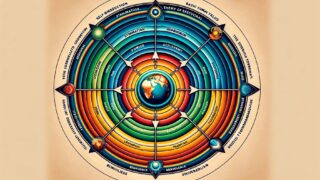
Theory of Basic Human Values
Do you have a question like this?What is "Theory of Basic Human Values"?This time, to solve such issue, I will provide a...

Channel expansion theory
Do you have a question like this?What is "Channel expansion theory"?This time, to solve such issue, I will provide a cle...

Communication Accommodation Theory
Do you have a question like this?What is "Communication Accommodation Theory"?This time, to solve such issue, I will pro...

Construal level theory
Do you have questions or concerns like these?What is Construal level theory?What is a concrete example of Construal leve...

Consumer Culture Theory
Consumer Culture Theory (CCT) is a field of study focusing on consumption from a social and cultural perspective, as opposed to economic or psychological viewpoints. It is not a singular theory but a collection of theoretical perspectives that explore the dynamic interactions between consumer actions, marketplaces, and cultural meanings. CCT recognizes cultural meanings as diverse and fragmented, reflecting a post-modernist society. It views consumer culture as a social arrangement where relationships between culture and social resources, and the meaningful ways of life dependent on them, are mediated through markets. Consumers are seen as part of an interconnected system of commercial products and images that shape their identities and relationships.

Deng Xiaoping Theory
Do you have a question like this?What is "Deng Xiaoping Theory"?This time, to solve such issue, I will provide a clear e...
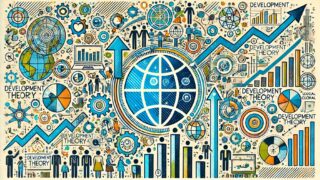
Development theory
Do you have a question like this?What is "Development theory"?This time, to solve such issue, I will provide a clear exp...

Domestication theory
Do you have a question like this?What is "Domestication theory"?This time, to solve such issue, I will provide a clear e...
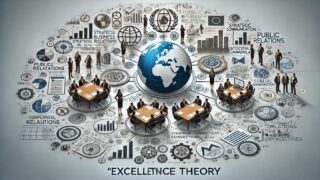
Excellence theory
Do you have a question like this?What is "Excellence theory"?This time, to solve such issue, I will provide a clear expl...

Expectancy-value theory
Expectancy-value theory is a psychological framework that explains individual motivation based on expectations and values of success. Originating in the fields of psychology and education, this theory has been widely applied in a variety of fields, including education, health, communication, marketing, and economics.

Expectation Confirmation Theory
Do you have a question like this?What is "Expectation Confirmation Theory"?This time, to solve such issue, I will provid...

Expectation states theory
Do you have a question like this?What is "Expectation states theory"?This time, to solve such issue, I will provide a cl...
FGHIJ
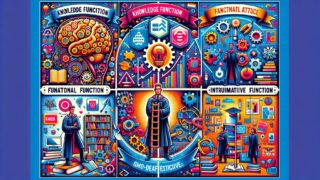
Functional Attitude Theory
Do you have a question like this?What is "Functional Attitude Theory"?This time, to solve such issue, I will provide a c...
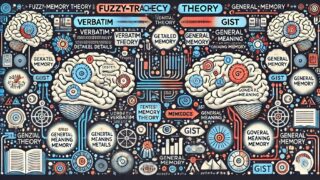
Fuzzy-trace theory
Do you have a question like this?What is "Fuzzy-trace theory"?This time, to solve such issue, I will provide a clear exp...

Hofstede's cultural dimensions theory
Do you have a question like this?What is "Hofstede's cultural dimensions theory"?This time, to solve such issue, I will ...
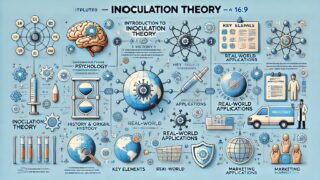
Inoculation theory
Do you have a question like this?What is "Inoculation theory"?This time, to solve such issue, I will provide a clear exp...

Interdependence theory
What Is "Interdependence Theory"?Hello everyone. How do you think about relationships between people?Interdependence the...
KLMNO

Theories of love
Do you have a question like this?What is "Theories of love"?This time, to solve such issue, I will provide a clear expla...

Mass-market theory
Do you have a question like this?What is "Mass-market theory"?This time, to solve such issue, I will provide a clear exp...
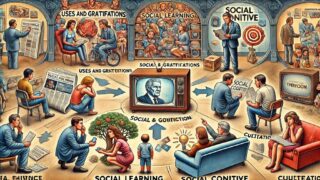
Theories of media exposure
Do you have a question like this?What is "Theories of media exposure"?This time, to solve such issue, I will provide a c...
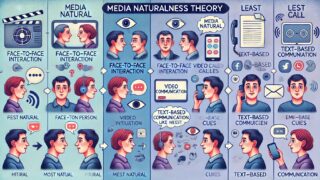
Media naturalness theory
Do you have a question like this?What is "Media naturalness theory"?This time, to solve such issue, I will provide a cle...
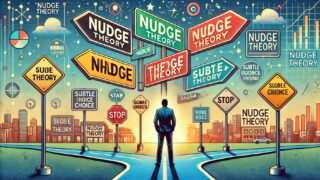
Nudge theory
Do you have a question like this?What is "Nudge theory"?This time, to solve such issue, I will provide a clear explanati...
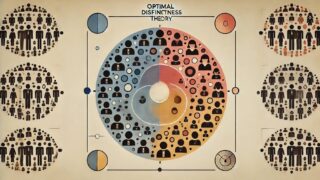
Optimal distinctiveness theory
Do you have a question like this?What is "Optimal distinctiveness theory"?This time, to solve such issue, I will provide...
PQRST

Theory of planned behavior
What is "Theory of planned behavior"?YuyaToday, I would like to talk about the theory of planned behavior.This theory is...
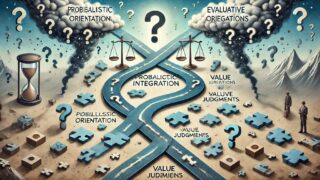
Problematic integration theory
Do you have a question like this?What is "Problematic integration theory"?This time, to solve such issue, I will provide...

Product life-cycle theory
Do you have questions or concerns like these?What is Product life-cycle theory?What is a concrete example of Product lif...
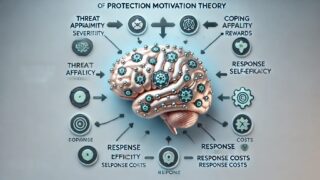
Protection motivation theory
Do you have a question like this?What is "Protection motivation theory"?This time, to solve such issue, I will provide a...
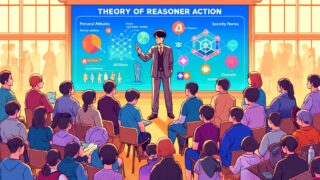
Theory of Reasoned Action
What is Theory of Reasoned Action?
The Theory of Reasoned Action (TRA) is a model used in psychology to predict how individuals will behave based on their pre-existing attitudes and behavioral intentions. Developed by Martin Fishbein and Icek Ajzen in the 1970s, TRA posits that an individual's behavior is determined by their intention to perform the behavior, which is itself influenced by their attitude toward the behavior and subjective norms surrounding it.
Here’s how it works, step-by-step:
Attitude Toward the Behavior: This refers to the personal evaluation of the behavior (positive or negative).
Subjective Norms: These are the perceived social pressures to perform or not perform the behavior.
Behavioral Intention: This is the motivational factor that captures the decision to perform a behavior and directly leads to the action.
TRA has been widely applied in various fields including health services, marketing, and environmental conservation, helping to understand and predict why people behave the way they do in specific situations.
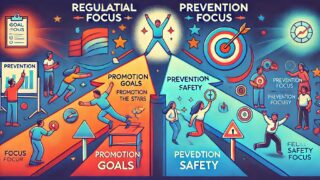
Regulatory focus theory
Do you have a question like this?What is "Regulatory focus theory"?This time, to solve such issue, I will provide a clea...
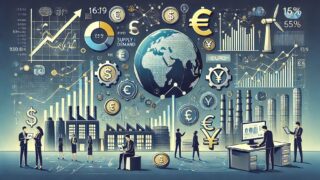
Theory of religious economy
Do you have a question like this?What is "Theory of religious economy"?This time, to solve such issue, I will provide a ...

Role Congruity Theory
Do you have a question like this?What is "Role Congruity Theory"?This time, to solve such issue, I will provide a clear ...

Role theory
Role theory is a perspective in sociology and social psychology that considers most everyday activity to be the acting out of socially defined categories (e.g., mother, manager, teacher). Each role is a set of rights, duties, expectations, norms, and behaviors that a person has to face and fulfill. The theory posits that human behavior is guided by expectations held both by the individual and by other people. These roles are subject to change, but at the same time, they are also sources of social control that influence people's behavior.

Self-regulation theory
Self-regulation theory is a framework that explains how individuals manage their behavior, emotions, and thoughts to achieve their goals. One of the main aspects of this theory is to understand how one can control their actions in a way that aligns with their personal objectives. Self-regulation theory plays a crucial role in various aspects of life, such as managing emotions and maintaining relationships.

Social cognitive theory
What is "Social cognitive theory"?YuyaHello everyone. In today's video, we will introduce the so-called social cognitive...

Social Exchange Theory
What is "Social Exchange Theory"?Hello everyone. Today, I will delve deeper into social exchange theory than ever before...

Social Identity Theory
What is "Social Identity Theory"?YuyaHello everyone. Today, I would like to explain in an easy-to-understand manner abou...
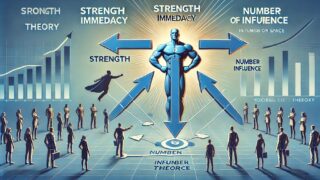
Social impact theory
Do you have a question like this?What is "Social impact theory"?This time, to solve such issue, I will provide a clear e...
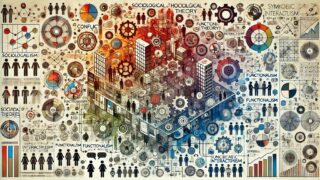
Sociological theory
Do you have a question like this?What is "Sociological theory"?This time, to solve such issue, I will provide a clear ex...

Sociological Theory of Diffusion
Do you have a question like this?What is"Sociological Theory of Diffusion"?This time, to solve such issue, I will provid...
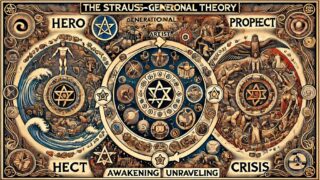
Strauss–Howe generational theory
Do you have a question like this?What is "Strauss–Howe generational theory"?This time, to solve such issue, I will provi...

Swift Trust Theory
Do you have a question like this?What is "Swift Trust Theory"?This time, to solve such issue, I will provide a clear exp...

Symbolic Self-Completion Theory
Do you have a question like this?What is "Symbolic Self-Completion Theory"?This time, to solve such issue, I will provid...

Third Space Theory
Do you have a question like this?What is "Third Space Theory"?This time, to solve such issue, I will provide a clear exp...

Tournament theory
Do you have a question like this?What is "Tournament theory"?This time, to solve such issue, I will provide a clear expl...


